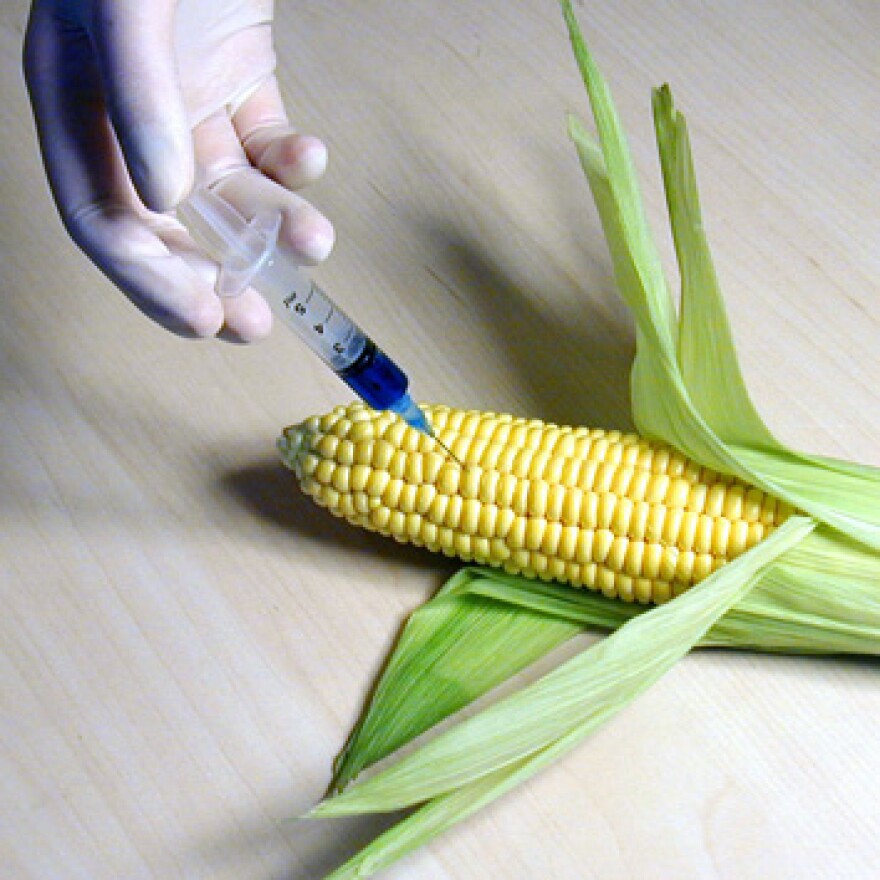A new law that took effect Friday in Vermont led to lawsuits attempting to stop its implementation and pending legislation in Congress intending to invalidate efforts to create a GMO labeling statute.
In May 2014, Governor Peter Shumlin signed H.112 into law. The Vermont Right to Know Law was the first in the country to require labeling of food produced with genetic engineering. The measure took effect July 1st, and supporters, including the state’s entire Congressional delegation and governor, gathered at the Statehouse to celebrate. Vermont Public Interest Research Group Executive Director Paul Burns: “It provides consumers for the first time in this country with clear understandable language in labeling so that they can know whether products contain genetically engineered ingredients. It doesn't apply to absolutely every food because states are limited in what we can do in this area. Certain foods like meats and dairy products for instance are the purview of the federal government exclusively. It does go a long way in the direction of giving consumers the information that they need to make informed choices.”
The law requires a notation below the existing ingredient label if the product includes any genetically modified material. On foods that are not packaged, the store shelf must be labeled.
The bill was not easy to pass. Rural Vermont Executive Director Andrea Stander says it took three years to get the measure through the Statehouse. “It was a challenge. It was definitely a challenge. It's a complex issue. It's one that the Vermont legislature had dealt with previously on a number of occasions in different iterations, not specifically food labeling, but labeling of seeds, labeling of the BST hormone that was used by the dairy industry for a long time. So it came with a lot of baggage and it required an enormous amount of grassroots pressure to get the legislators to vote for it.”
While supporters are celebrating, the law faces an uncertain future. The state is defending a lawsuit challenging the law. And the U.S. Senate has crafted legislation that would require GMO labeling and preempt any state laws. Supporters of Vermont’s law are critical of the federal proposal, saying it’s too industry-friendly.
State Senator David Zuckerman supported and helped craft Vermont’s law. The Progressive/Democrat owns Full Moon Farm and is currently the vice-chair of the Senate Committee on Agriculture. And not insignificantly, he is running for Lieutenant Governor. “What we crafted was a very clear and transparent label that a consumer could read in the store. And at the federal level the interest of the food manufacturers and the seed manufacturers is weighing heavily on those legislators, I would argue due to large corporate donations and other reasons, where they are working to create a very opaque law where you need to have a smartphone and cell service to actually be able to find out what's in the package. And I just don't think that many people while going through the store will start phone dialing multiple 1-800 numbers while shopping.”
The U.S. Senate is set to begin voting on the federal measure Wednesday.




